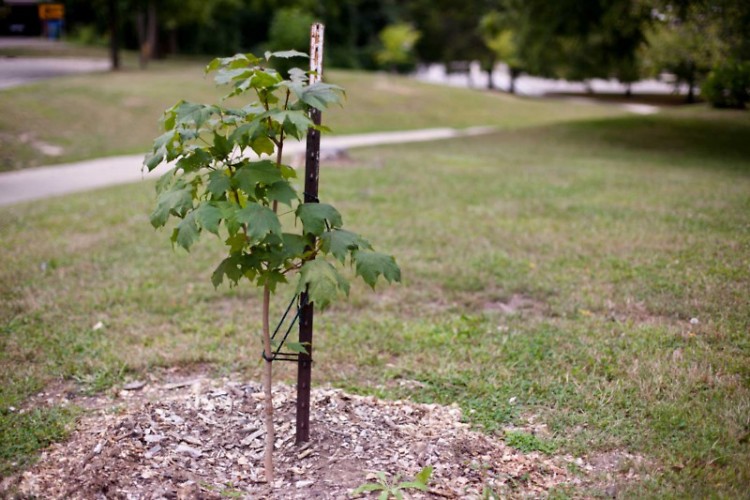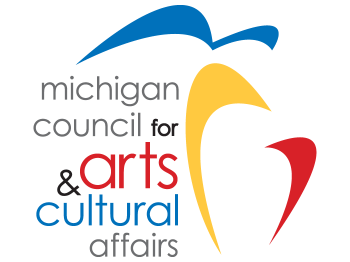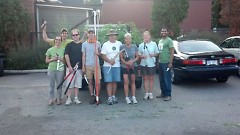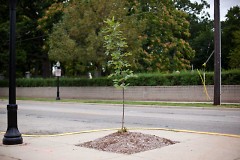You enjoy the benefits provided by trees every day. Some of them are obvious; others are not. Perhaps not entirely intuitive is the role that trees play in our community. Various research demonstrates that trees help to make streets safer, deter crime, improve property values, strengthen social cohesion, contribute to neighborhood vitality and attract people to business districts. By understanding these values our community has adopted goals to protect, enhance and expand tree canopy throughout Grand Rapids.
Several Grand Rapids neighborhoods have a rich history of building the urban forest in their community. Neighborhoods such as Creston, Midtown, Oakdale and Ottawa Hills have participated in tree enhancement projects. Starting with tree planting, East Hills residents eventually went as far as completing a public tree inventory and urban forest plan specific to their community. This plan was later used to advocate for the effective treatment of Ash trees (to stop Emerald Ash Borers) across our city.
This spring, Dotti Clune and Carol Moore led a tree planting effort in East Hills. With funding and technical assistance from Friends of Grand Rapids Parks (see the mini-grant program), Carol and Dotti located planting locations, recruited volunteers and received permission from property owners to care for the young trees.
However, the benefits provided by the trees are not the only thing that add to our community. Sometimes the simple act of planting trees with your neighbors can have an impact in developing community spirit.
“Our volunteers ranged from property owners who have been active in the community for more than 25 years to young renters whom we met for the first time” says Clune. “Through it all, the planting offered us the opportunity to talk, laugh, share stories and meet new neighbors.”
Clune and Moore both feel that tree planting is a rewarding experience to help build friendships, share experiences and build community energy.
“[Tree planting] strengthened our connections to our community," says Clune. "Our exceptional neighbors reminded me that when we plant trees together we build neighborhood friendships and make a lasting contribution to our community.”
Interestingly, this process works both ways. A recent study by Yale University suggests that increased community involvement in tree planting may actually improve tree survival and growth rate. Specifically, the more people involved in a tree planting, the more trees a community has planted, and the more years a community has been planting trees improves the growth and survival rate for trees in that neighborhood.
Ultimately, planting a tree is a simple, straight-forward and enjoyable route to placemaking.
The Rapidian, a program of the 501(c)3 nonprofit Community Media Center, relies on the community’s support to help cover the cost of training reporters and publishing content.
We need your help.
If each of our readers and content creators who values this community platform help support its creation and maintenance, The Rapidian can continue to educate and facilitate a conversation around issues for years to come.
Please support The Rapidian and make a contribution today.



